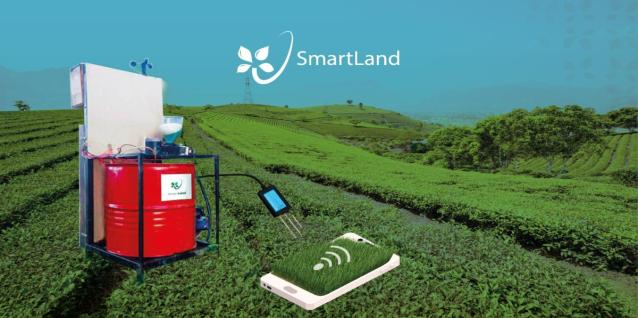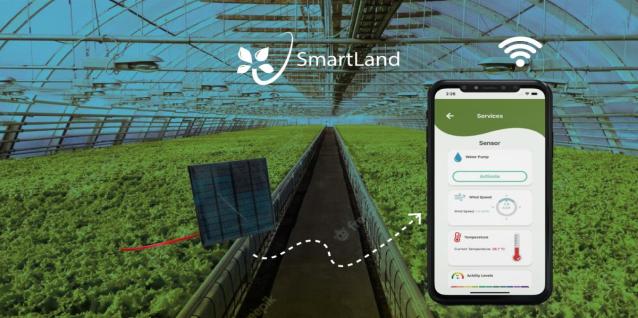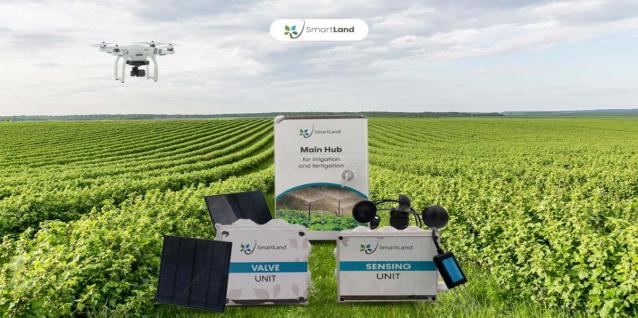SmartLand: Irrigation and Fertigation System
SmartLand: Irrigation and Fertigation System
who we are
SmartLand is a new, efficient, user-friendly and unique irrigation and fertigation system with advanced technologies
A smart irrigation system that irrigates plants according to their needs

A smart fertigation system that fertigates plants in accordance to their specific needs

A fully automated heating and cooling system that regulates the conditions inside the farm.

Happy Clients

Total Projects

Treated Hectare

Won Award
What we do

Smart irrigation systems increase revenues by optimizing water usage, reducing costs, and enhancing plant health and productivity. Automation reduces manual labor, allowing staff to focus on revenue-generating tasks. Remote monitoring ensures quick issue resolution, protecting crops and revenue. Data-driven insights optimize irrigation practices, improving yields and product quality. Overall, these systems boost efficiency and profitability.

Smart irrigation systems reduce costs by optimizing water usage, energy efficiency, maintenance, and labor. They prevent water waste through precise watering, lower energy bills by efficient scheduling, and detect issues early to avoid expensive repairs. Automation minimizes manual labor, while data analysis enhances irrigation efficiency and crop health. These systems deliver significant savings in water, energy, maintenance, and labor costs.

Smart irrigation systems boost revenues by increasing crop yields and quality, which leads to higher sales and premium pricing. They optimize resource use, lowering costs and freeing budget for growth. Consistently healthy crops improve customer satisfaction and loyalty, while showcasing sustainability attracts eco-conscious buyers. Data-driven decisions enhance irrigation and cultivation, maximizing efficiency and revenue potential.
Who's behind Smartland
Holder of a Master of Science in Electrical Engineering, Khaled has been working for over a decade in the agricultural industry with first-hand experience in all facets of farming, namely planting, harvesting, plowing, spray medication, and above all, the irrigation and fertigation sectors.
Ahmad worked for 10 years in Accounting, where he started his career as a Senior Accountant at Citiscape LLC and later worked for 6 years with Al Jaber Group as a Chief Accountant. He joined SmartLand team to answer the growing requirements of the business and its business development objectives.